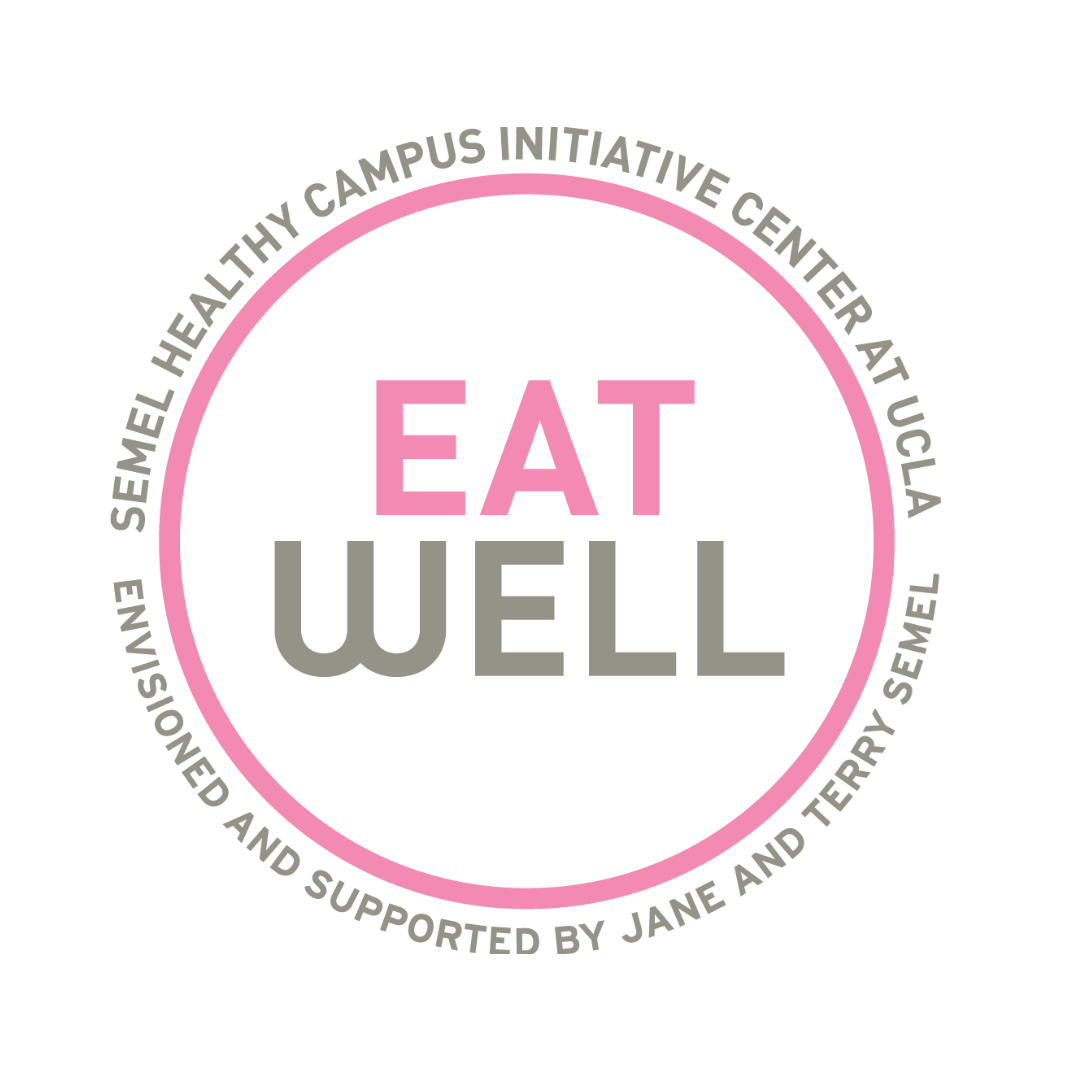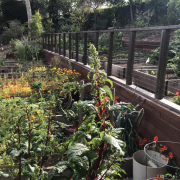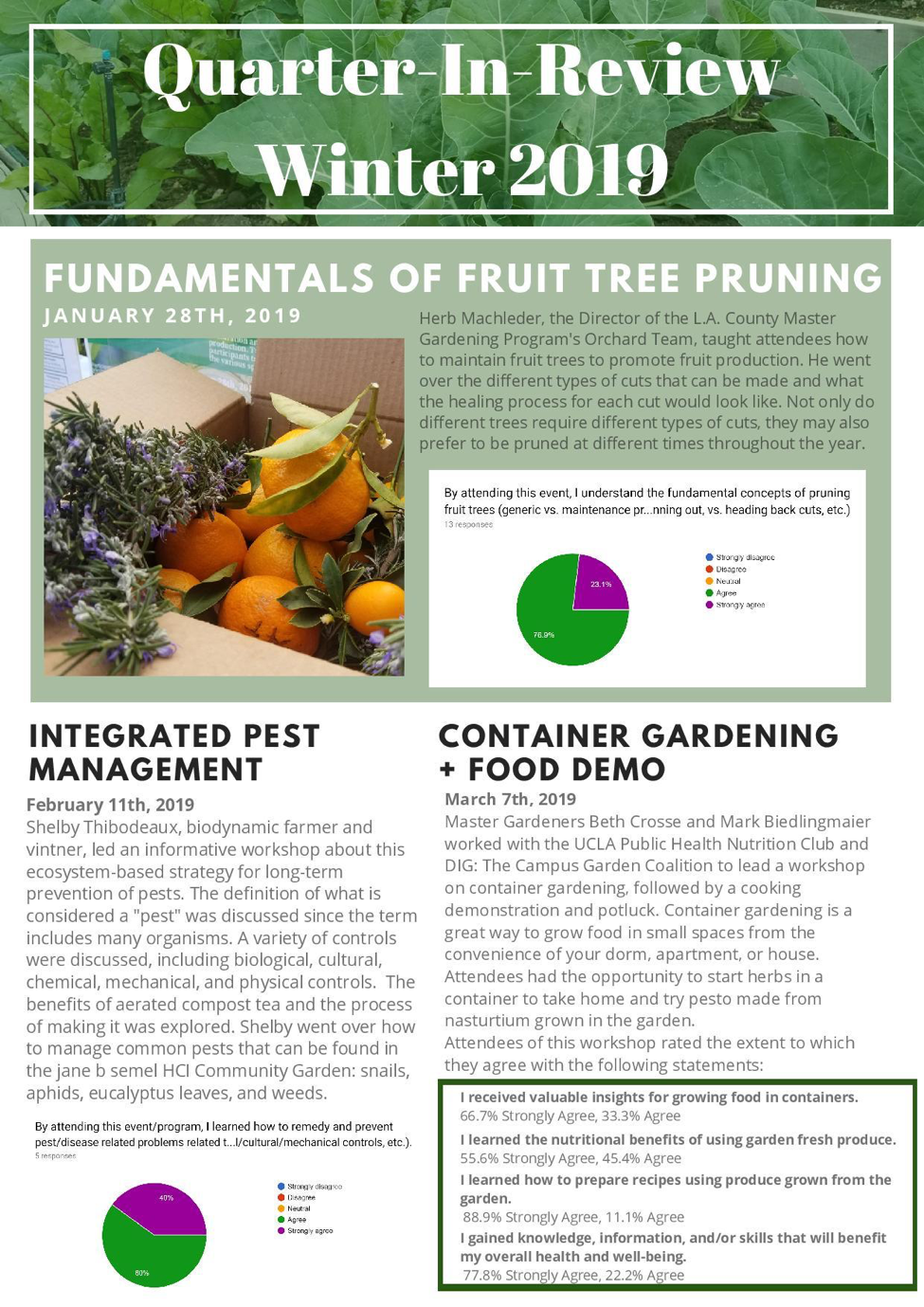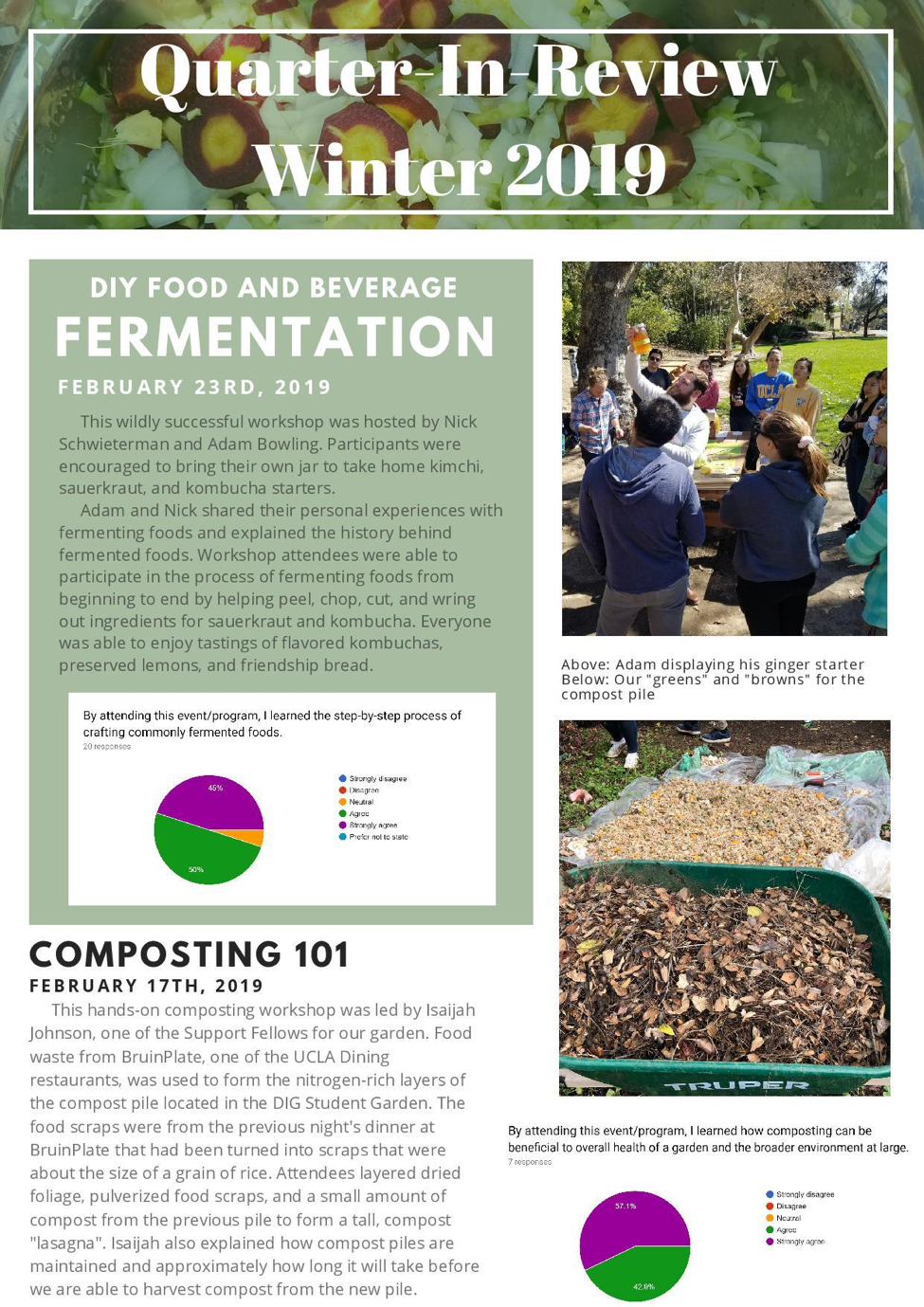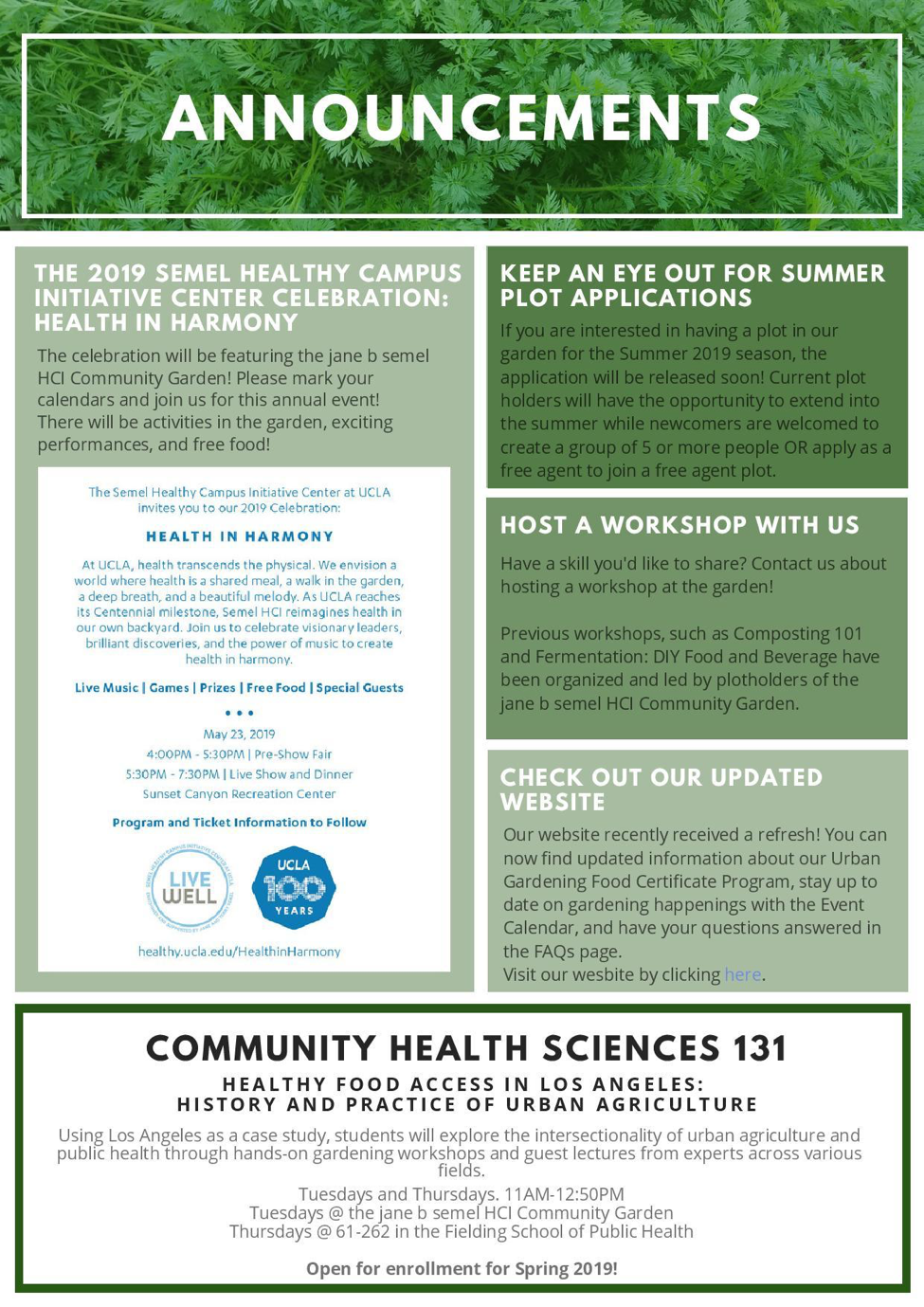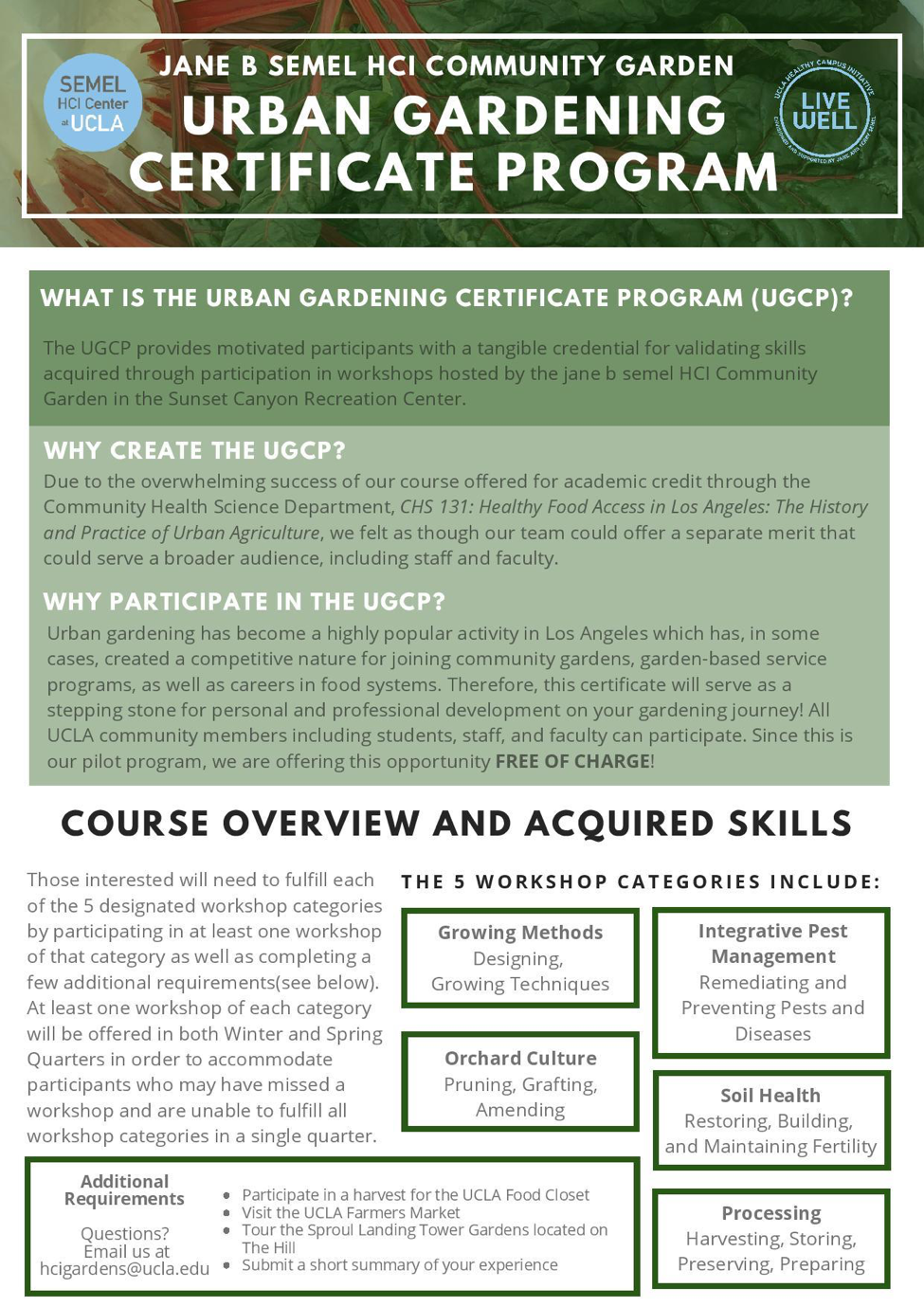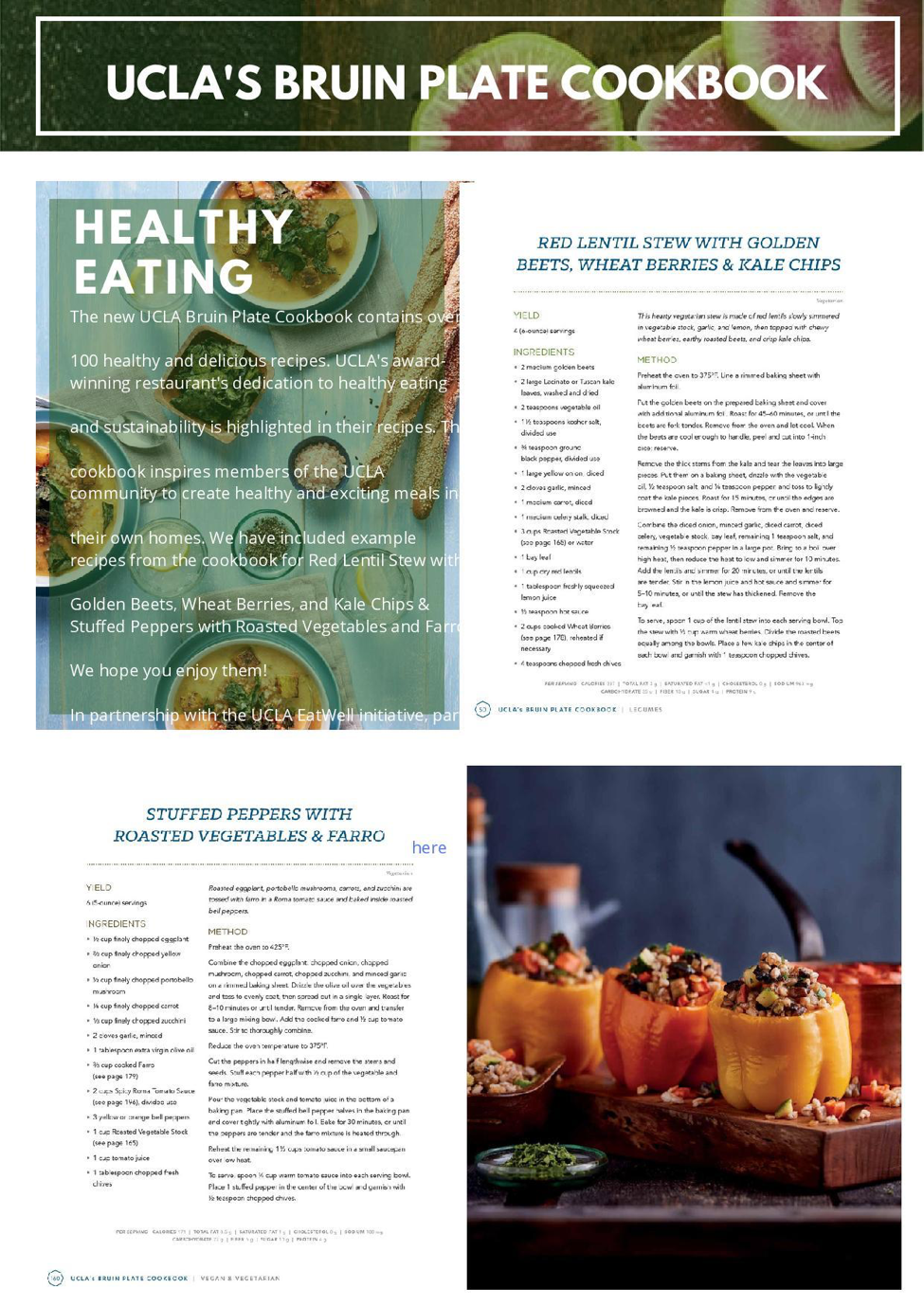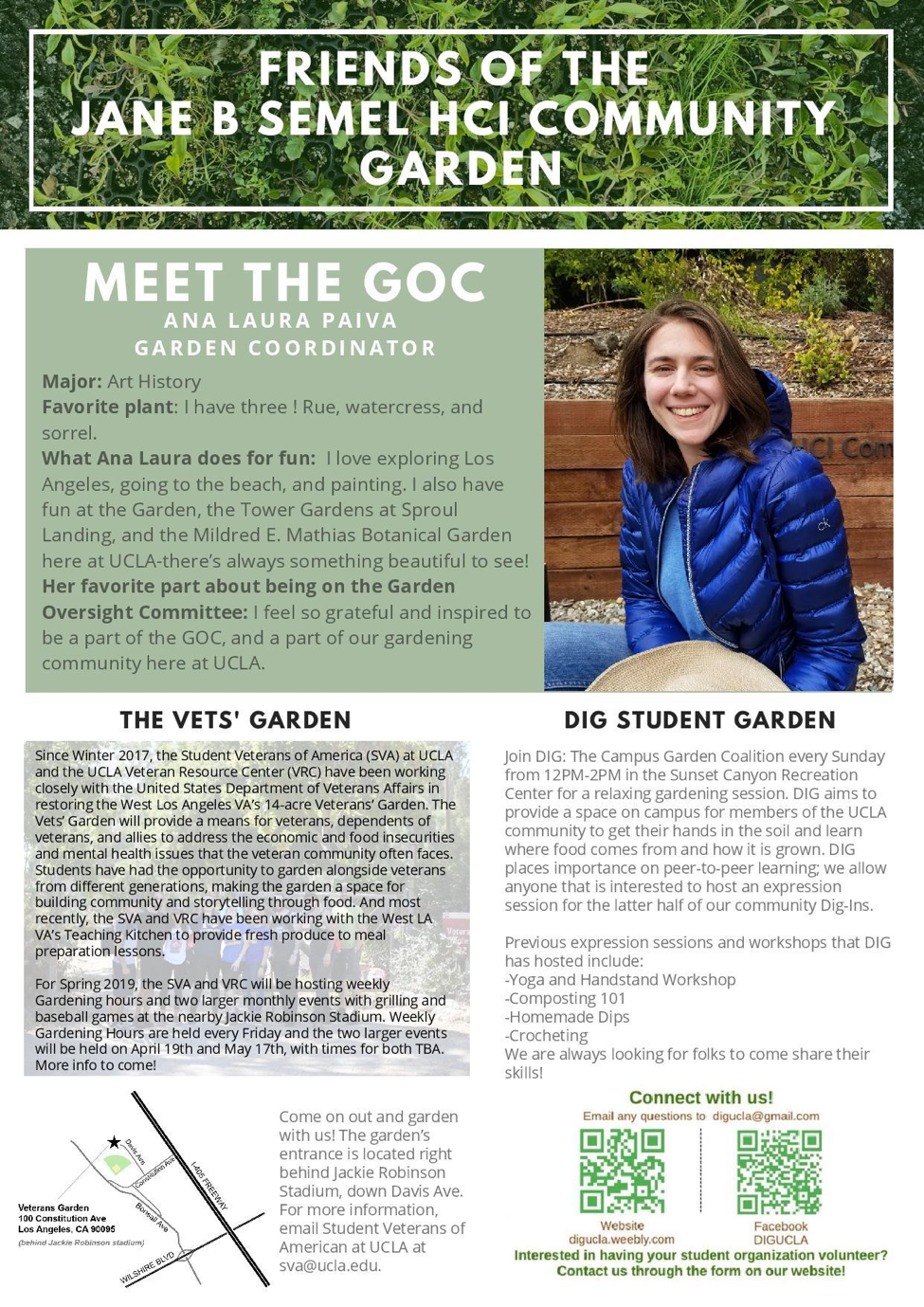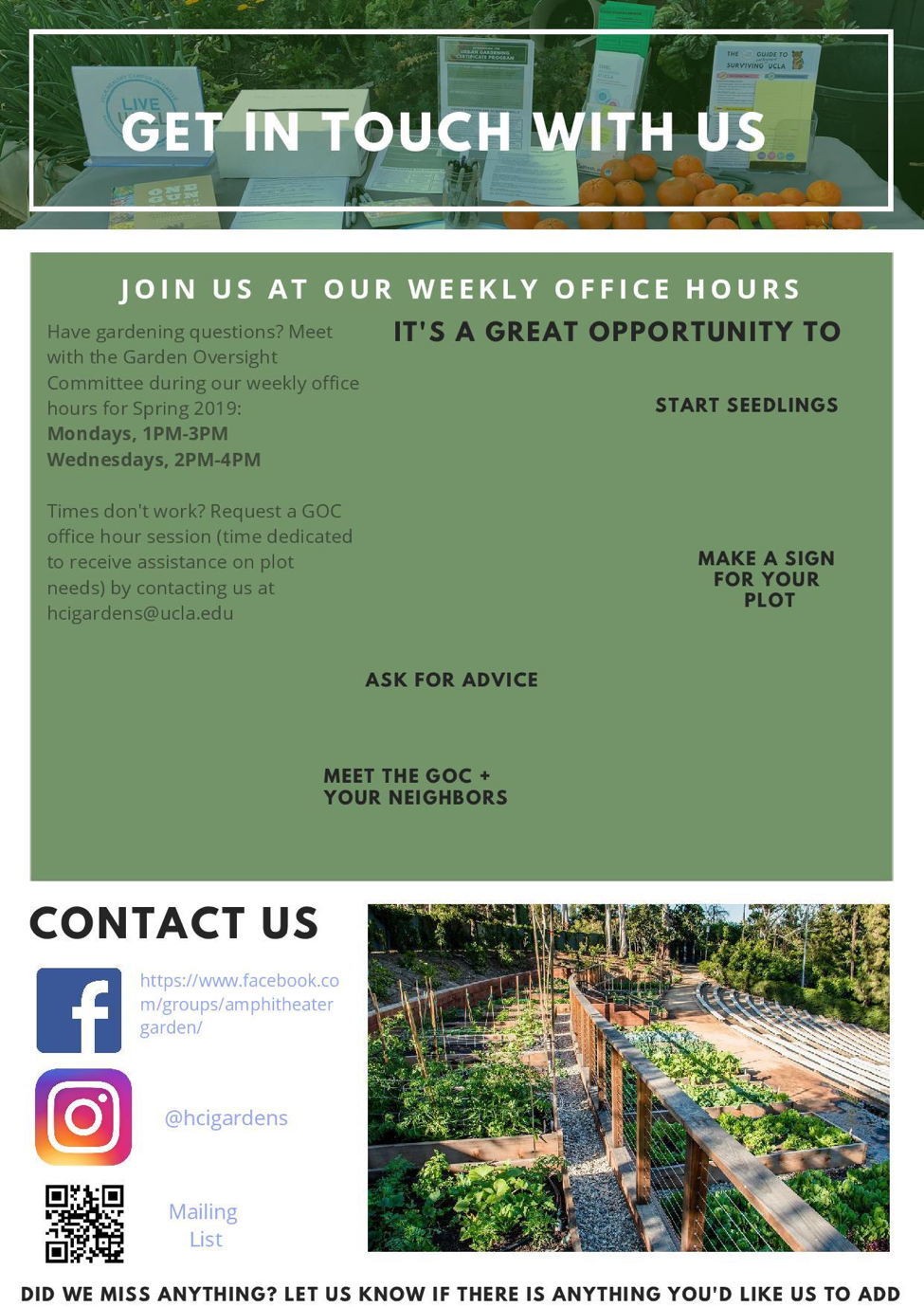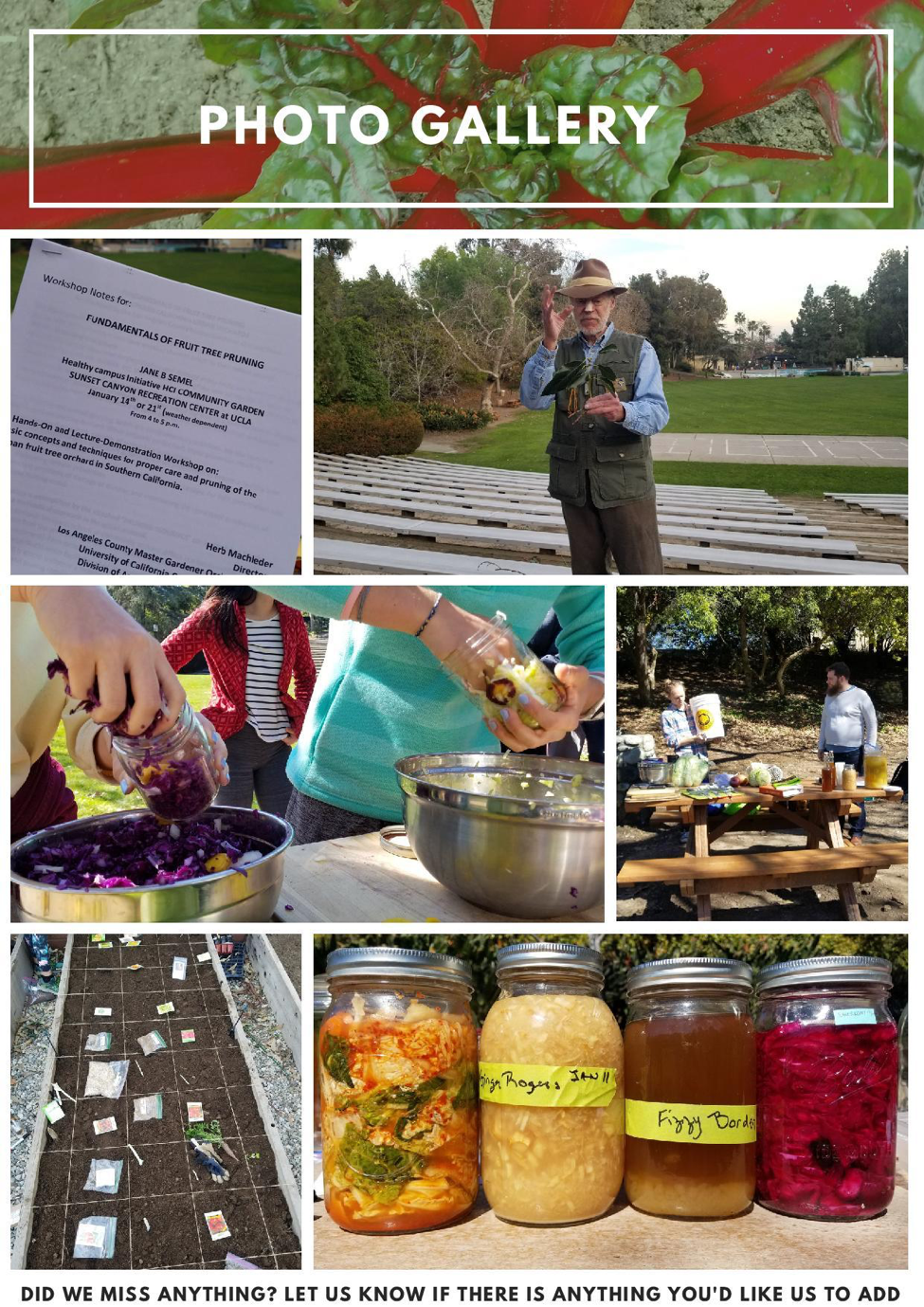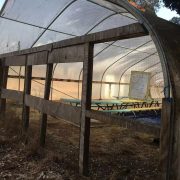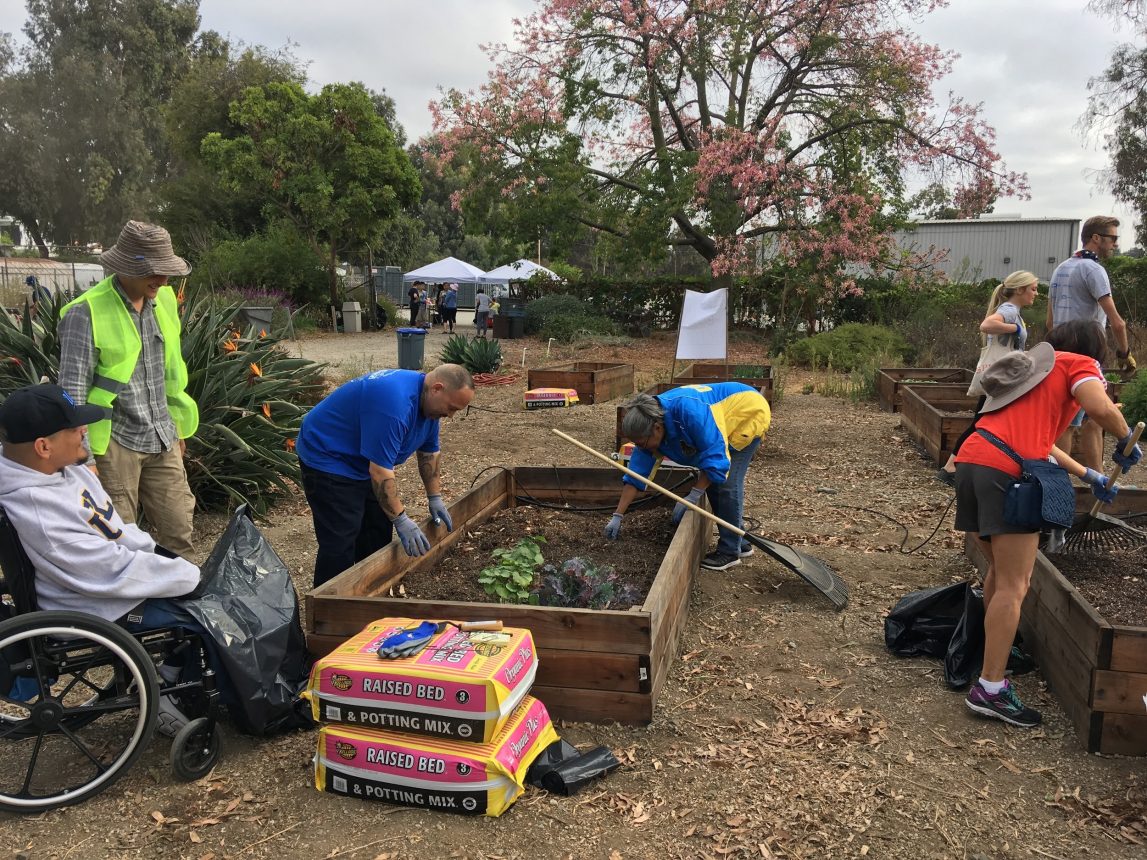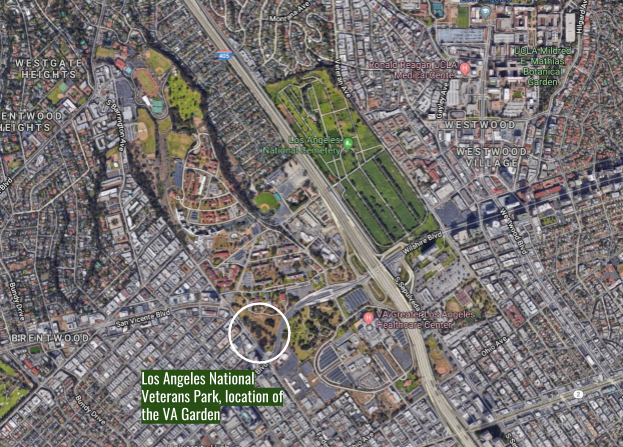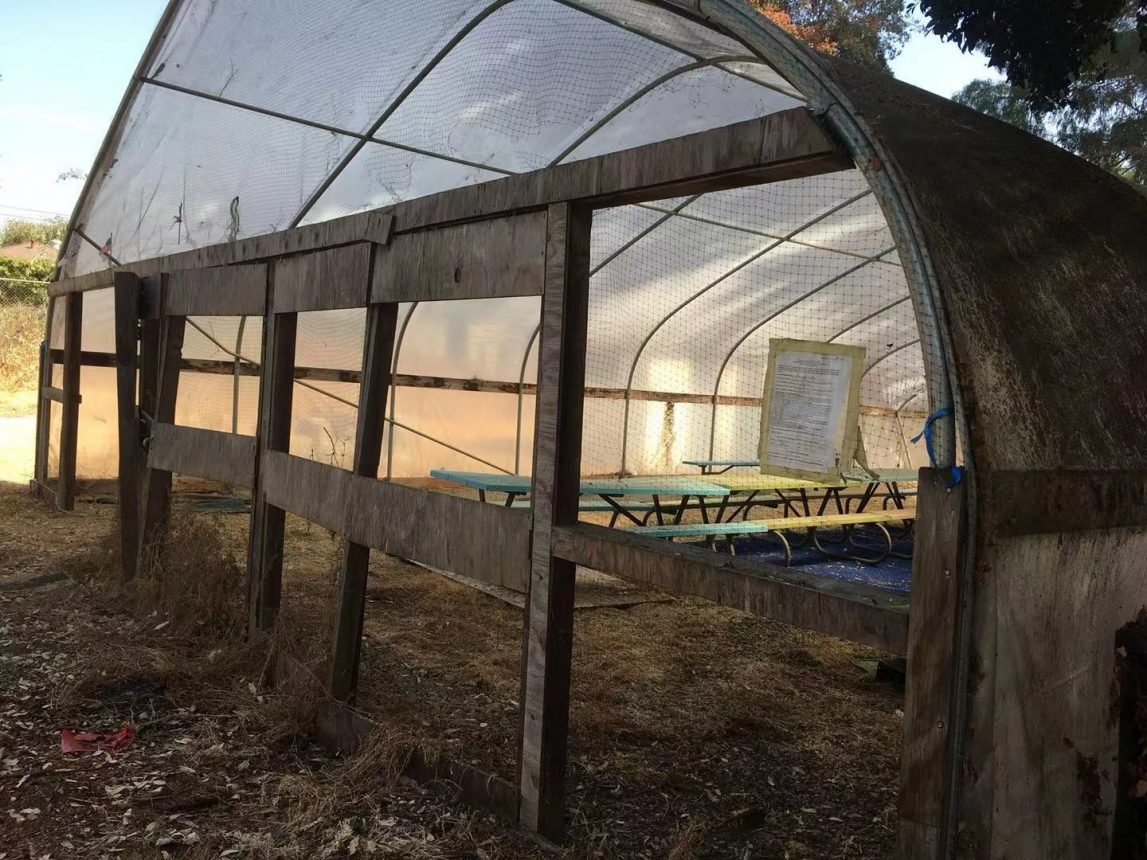The Urban Gardening Certificate Program: Another Way to Get Involved with the Garden!
In a recent survey of participants at the jane b semel HCI Community Garden, 55.6% of participants agreed that the garden increased their sense of community at UCLA. More than 50% agreed that the garden had inspired an increase in their consumption of fresh produce and 83% agreed or strongly agreed that participation increased their overall health. Gardening is known to not only encourage healthier eating habits and increase food security, but also provide a variety of surprising health benefits, including decreased risk of stroke, Alzheimer’s, and depression, as detailed in this article by Robin Jacobs.
In 2015, the student club Dig: The Campus Garden Coalition at UCLA was inspired by these benefits and joys of gardening. Supported by the Semel HCI Center and its founder and visionary Jane B. Semel, Dig students designed the jane b semel HCI Community Garden at the Sunset Canyon Recreation Center. Dig has existed since long before the creation of the garden as the main student-led collaboration behind the expanding food growing and gardening program on UCLA’s campus. Now, the garden’s 31 beds are used for academic courses, by student organizations, and by small groups of students, staff, and faculty. For anyone interested in applying for a plot, all that is needed is a group of at least five UCLA affiliates with a shared desire to grow your own produce, then head to the garden’s website and select the “How to Join” tab.
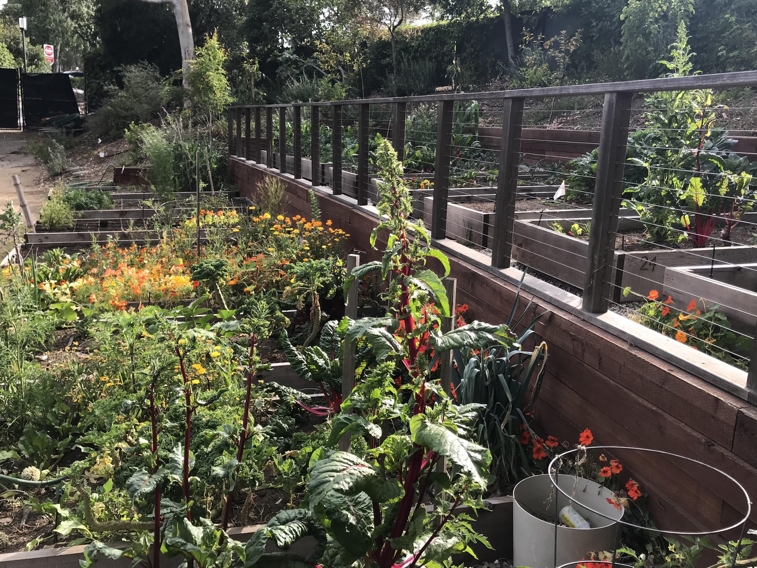
The jane b semel HCI Community Garden.
Tangible Credit for Gardening at UCLA
In alignment with one of the garden’s original goals to educate UCLA students, staff, and faculty, the garden began to hold workshops and general workdays in 2016. At the beginning of the program, workdays were casual, but they became more structured as the garden expanded. The Urban Gardening Certificate Program (UGCP) was later created due to astounding demand for the academic course CHS (Community Health Sciences) 131: Healthy Food Access in Los Angeles.
The UGCP is a free, flexible program recognizing a participant’s commitment to attending a series of workshops and events geared towards building fundamental knowledge of gardening. A collection of 5 workshops are held throughout the quarter, on topics such as growing methods, orchard culture, integrative pest management, soil health, and processing. Participants are awarded the certificate upon attending one workshop of each category and completing a few additional requirements detailed in the image below. For the program pilot, these five workshops are offered during both each winter and spring quarter, so if you’re unable to attend one in winter quarter, you can attend during the spring instead!

More information on the UGCP.

Examining the carbonation and SCOBY at a recent workshop on fermentation.

Making sauerkraut at a recent fermentation workshop.
To learn more about the jane b semel HCI Community Garden:
Facebook: https://www.facebook.com/groups/amphitheatergarden
Instagram: @HCIgardens
Email: hcigardens@ucla.edu
Sign up for the mailing list here! https://ucla.us18.list-manage.com/subscribe?u=23cc009df9eb0fd1d338f2b6d&id=8445a6df09
See the Winter 2019 Newsletter below:
Patience Olsen is an undergraduate student at UCLA majoring in Civil Engineering. In addition to blogging for the EatWell Pod, she volunteers at the Mildred E. Mathias Botanical Garden on campus, and is a member of the ASCE Environmental Design project.
